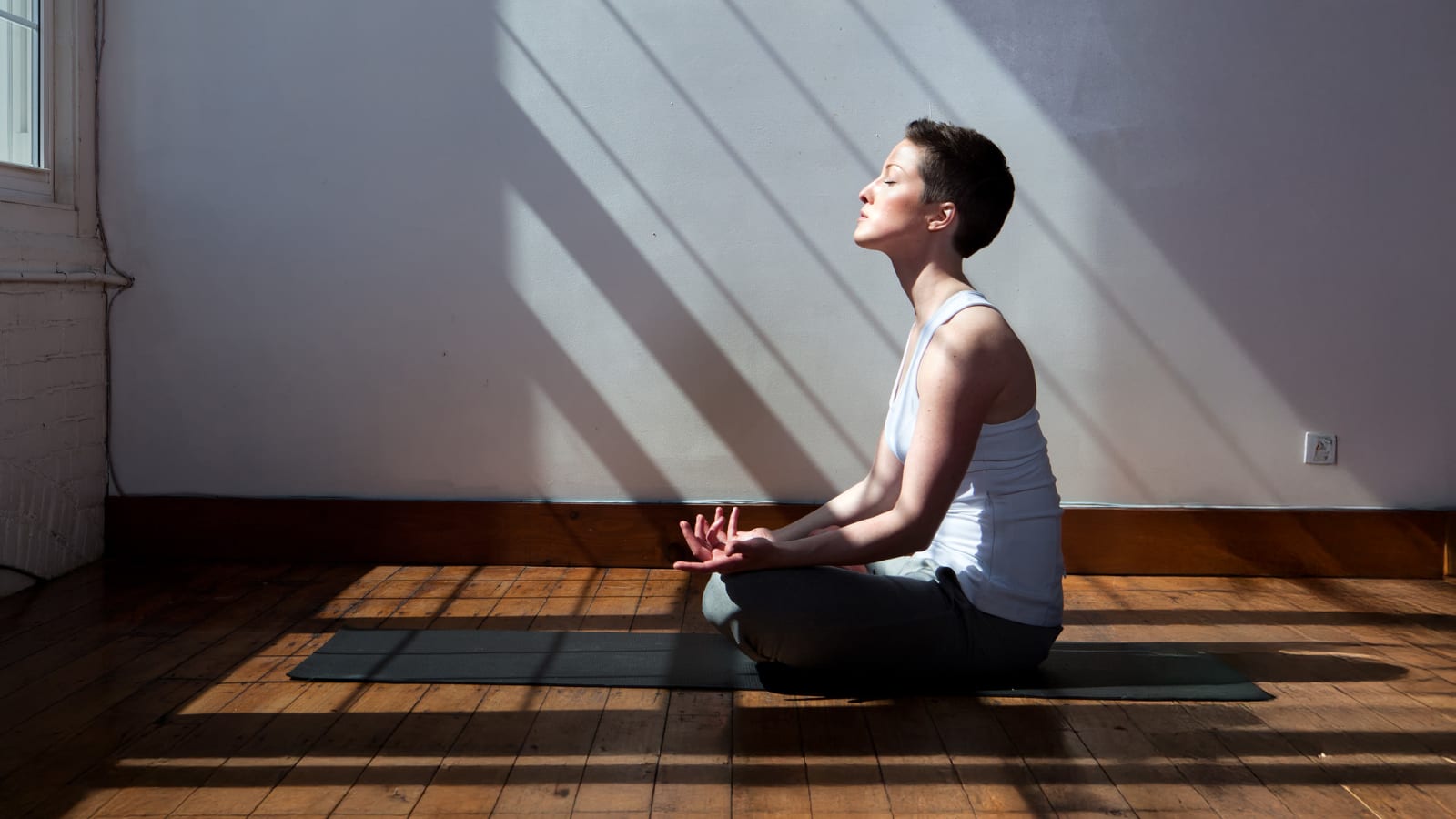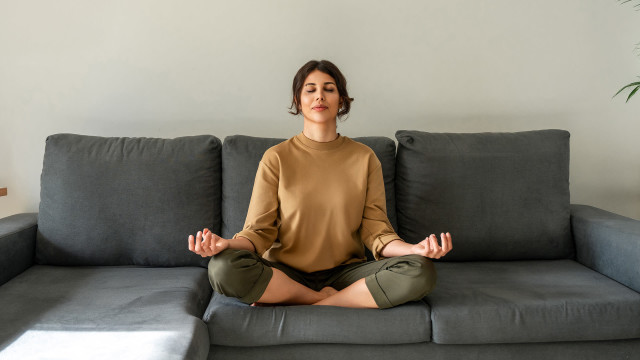Start A Daily Meditation Habit

It’s well-documented that regular meditation benefits both the physical mechanism of the brain and overall mental wellbeing. But there are other benefits to a daily practice, says Roundglass mindfulness teacher, Jay Vidyarthi. Growing up, Vidyarthi watched his father keep a regular meditation practice, but it wasn’t until Vidyarthi was an adult himself that he tapped into this familial practice that has changed his life. “Meditation has made me less self-conscious, less distracted, and more authentic,” he says. “It’s made me less selfish than I was when I started in my early 20s,” says Vidyarthi.
Learning to Meditate Daily
When we first come to meditation, it can feel challenging and overwhelming. Clearing your brain and quieting the thinking mind may seem impossible. But what may initially feel insurmountable, eventually evolves into the new norm. Humans actually adapt more quickly than we think.
With practice, we settle into a meditation rhythm — coming into stillness with more ease and sitting for longer periods of time. A scheduled daily meditation will help keep you on track and committed, and it even builds muscle memory.
It's a commonly held understanding that the more we practice meditation, the better we are at tracking what’s going on in our lives and the world around us. We create space for more intentional choices, leading to more mindful behavior, says Vidyarthi.
Mindful Reaction
In mindfulness courses, teachers often instruct students to imagine something mildly triggering. You may imagine an unpleasant interaction with a family member or a colleague, or a situation that stresses you out, like sitting in traffic.
When we become triggered, it’s normal to react — to feel angry or shut down. Emotional stress like this kick- starts a physical response — a chemical reaction in the body that causes the heart rate to increase, breathing to accelerate, and muscles to tense. This is the classic fight-or-flight response, when we automatically engage our nervous system, preparing it for action.
Daily meditation helps slow the automatic fight-or-flight response, allowing for a more careful and, conscious ( — chosen) — reaction, says Vidyarthi. We create space between triggers and reactions; space to notice how the mind and body responds to an unwanted experience, and then choose how to proceed mindfully.
“When it comes to being who you are, authentically, that choice makes all the difference,” says Vidyarthi.
How to Meditate Daily
Set a dedicated time every day when you will commit to meditating — and keep consistent. Try setting your alarm 15 minutes earlier to meditate for 10 minutes before you start your day. Meditation is a lovely bookend to the day, says Vidyarthi, so when you’re just starting your meditation practice, try beginning or ending with 10 minutes to establish a routine. Remember, consistency is key to building muscle memory.
Designate a place to meditate. Whether on a couch, a floor cushion, or propped up in bed, choose a place with the least distractions for your meditation.
Tap into a meditation app! Guided meditations can help build a practice, particularly for beginners. Find a teacher you like, and “follow” them so you automatically receive notices and reminders about when to practice.
Don’t be too hard on yourself. Practice patience and nonjudgment. Building any new habit takes time and dedication, and no one expects you to immediately get the hang of something new. The important part is showing up day after day.
Vidyarthi's new Roundglass course on Reclaim Your Attention can be a great tool to utilize as you train your brain to identify distraction and prioritize presence.
Header Photo by: aldomurillo/E+/Getty Images
Key Takeaways:
- Build a routine by meditating for at least a few minutes each day.
- Practice patience and nonjudgment.
- Set a dedicated time to practice every day.








